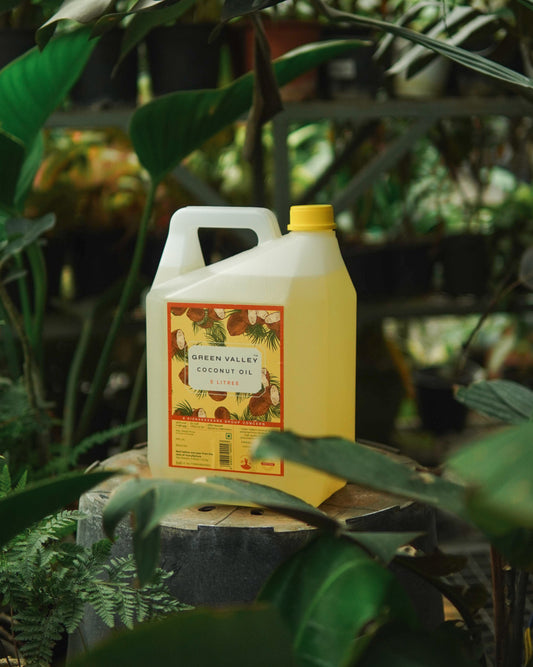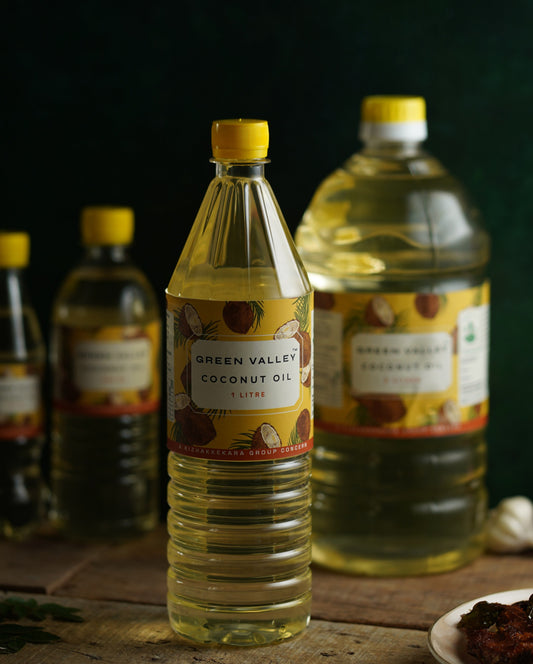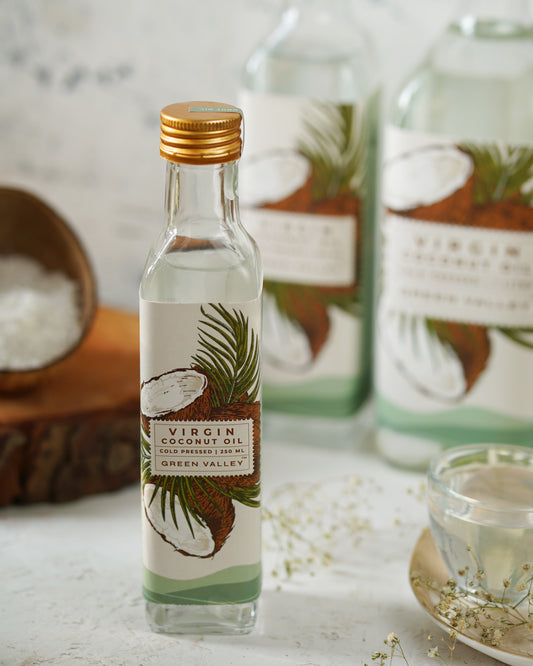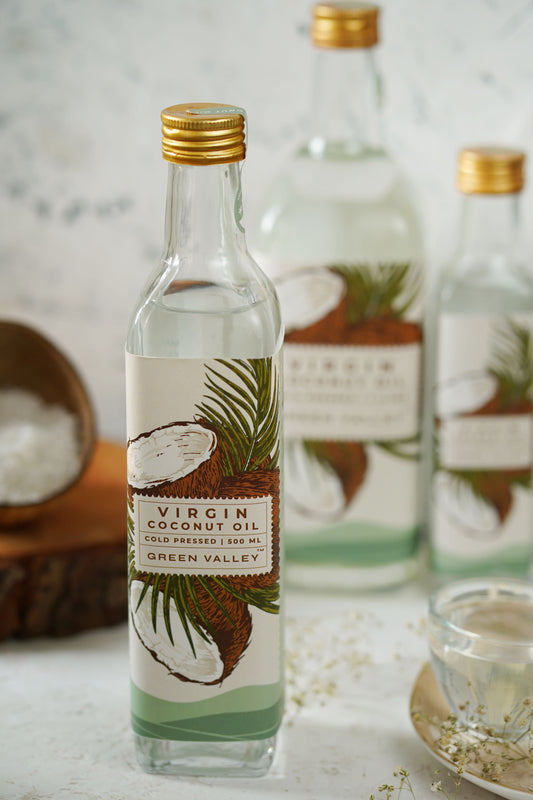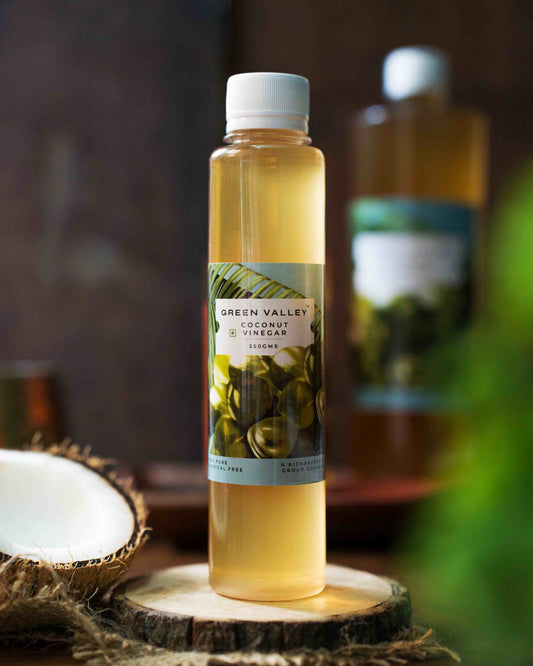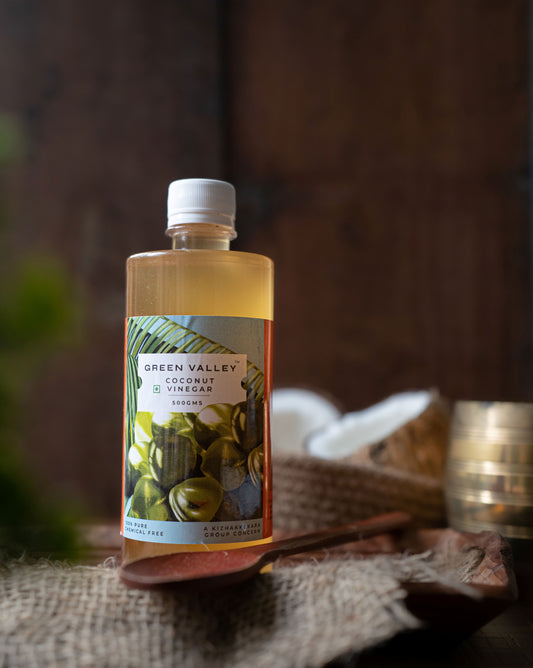Since the dawn of time, humans have very carefully and quite obsessively dedicated a considerable chunk of their precious time to nurturing their hair. No man or woman walks on Earth who doesn’t own at least a couple of hair products, except for a handful who have been unfortunate enough to have that gift taken away from them.
May it be to resuscitate our dull, lifeless hair or in hopes of a miracle that might stop the balding, you have come to a crossroads between picking castor oil or coconut oil.
And we are here to assist you with that.
The answer isn’t simple, nor is it cut-and-dry. The answer to this question is something you and only you can decide. But let’s get you equipped with all the facts first to make the right call.
How can coconut oil help my hair?
Coconut oil isn’t just a pantry staple; it’s a time-tested hair care icon. For centuries, tales about its nourishing powers have been a prominent bedtime story in the Indian subcontinent. Weekends with intense coconut oil moisturizing was a ritual.
So, what makes coconut oil so special for hair?
1. Rich in Fatty Acids
Coconut oil is around 90% saturated fat, packed with medium-chain fatty acids like Lauric acid. Lauric acid has a unique ability to penetrate the hair shaft, reducing protein loss, and resulting in softer, smoother, and more resilient hair.
2. Hydration Power
For dry, brittle hair, coconut oil works wonders as a moisturizer. The fatty acids help create a protective layer around the hair strand, keeping moisture in and environmental pollutants out.
3. Antimicrobial Benefits
Lauric acid isn’t just great for moisture; it also has antimicrobial properties that help keep dandruff and minor scalp infections at bay. A healthy scalp is essential for healthy hair growth, making coconut oil a great choice if you’re looking to enhance scalp health.
4. Perfect for Frequent Use
Coconut oil is lightweight, making it suitable for regular use without the risk of heavy buildup. For those with finer hair, it provides a boost of hydration without weighing your hair down.
5. Mild Fragrance
Let’s not forget the subtle, sweet fragrance of coconut oil. Unlike stronger oils, coconut oil’s scent is natural and light, which adds to its popularity in hair care routines.
In summary, coconut oil is ideal for those with dry or damaged hair who need frequent conditioning without a heavy, greasy after-feel. Plus, its antimicrobial properties are a bonus for scalp health.
How can Castor Oil help my hair?
While coconut oil takes center stage in many routines, castor oil is a quietly powerful contender. Although lacking in popularity, castor oil has been a housewife’s secret and has started moving into the spotlight. Known for its viscous, almost honey-like texture, castor oil has earned a place in hair care for its strength and unique properties.
And why, you ask?
1. High in Ricinoleic Acid
Castor oil’s primary component is ricinoleic acid, a fatty acid known for its impressive anti-inflammatory and moisturizing benefits. Ricinoleic acid improves circulation to the scalp, promoting healthier hair growth and thickness.
2. Locks in Moisture
Castor oil is incredibly thick and rich, which means it provides a deep seal on the hair shaft, trapping moisture effectively. It’s particularly great for those with thicker, curly, or coily hair types that crave intense hydration.
3. Prevents Hair Breakage
Castor oil’s rich and viscous nature makes it excellent for reinforcing fragile hair. It helps strengthen the hair shaft, reducing breakage and split ends, making it a favorite for people on hair growth journeys.
4. Protective Layer Against Damage
Castor oil coats the hair, providing a protective layer against environmental damage. This makes it an excellent choice for those exposed to pollutants or UV rays, helping to maintain hair health in harsh conditions.
5. Promotes Thicker Hair
Many people swear by castor oil for achieving thicker, denser hair. It’s a popular choice for eyebrow and eyelash growth, too. While research on its efficacy for thicker hair is still emerging, its benefits in promoting scalp health and strengthening hair can’t be denied.
For those with naturally coarse, curly, or thick hair, castor oil is a hydration powerhouse. It’s especially beneficial if you’re focused on growth and need to strengthen each strand.
So, Which Oil is the Winner?
The answer lies in your individual hair needs. Coconut oil and castor oil have their own sets of benefits, and each can address different hair care goals:
Choose Coconut Oil if…
- You have finer hair or a looser hair texture.
- Your main goal is to keep hair smooth, manageable, and hydrated.
- You’re looking for a lightweight oil that won’t leave heavy residue.
- You’re aiming to nourish and protect the scalp, keeping dandruff at bay.
Choose Castor Oil if…
- You have thicker, coarser hair that requires more intense hydration.
- You’re focused on preventing breakage and want to strengthen the hair shaft.
- You’re aiming for volume and hoping to thicken your hair over time.
- You don’t mind a thicker oil and are open to less frequent applications.
But as wonderous as this world is, your options for hair nourishment doesn’t end there. Mankind's obsession with great hair has led to a few tried and tested tricks that combine the powers of both coconut oil and castor oil. Lucky for the readers, I just happen to listen very keenly to the bedtime stories and pearls of advice my grandmother graciously bestowed on me.
1. Coconut Oil Base with Castor Oil Added
For those who love coconut oil but want an extra boost, add a few drops of castor oil. This combination gives the deep conditioning benefits of coconut oil with the added strength of castor oil, all while keeping the blend light.
2. Castor Oil Mask with Coconut Oil Finish
Start with a castor oil treatment, massaging it onto the scalp and focusing on the ends. Rinse thoroughly, then add a light coat of coconut oil to finish. This helps lock in moisture without leaving a heavy residue.
3. Overnight Treatment
Mix equal parts of castor and coconut oils, massage into the scalp and hair, and leave overnight. In the morning, shampoo as usual. This is ideal for a deep treatment that gives your hair a hydration boost and reinforces each strand.
Or better yet, make a mix of both in ratios that you feel would work best for your hair. Being an owner of a head full of hair that is thin, light, and as dense as the hills of Ladakh, with an occasional inclination to rain down hellfire in the form of headaches on build-up, I find 1:9 ration of castor and coconut oil respectively perfect for my hair care, followed by an intense rinse.
In the end, there’s no strict “better” or “worse” between coconut oil and castor oil—they’re both fantastic, each in its own way. Coconut oil is a lightweight, easy-to-use option perfect for regular conditioning, while castor oil offers robust hydration and strengthening for more intensive hair care needs.
If you’re already using coconut oil and loving it, keep at it—its benefits are tried and tested. And if you’re curious about castor oil, feel free to give it a try, or even blend it with your coconut oil for a customized approach to hair health.
Hair care is personal, and the best oil for you is the one that meets your hair’s unique needs.


